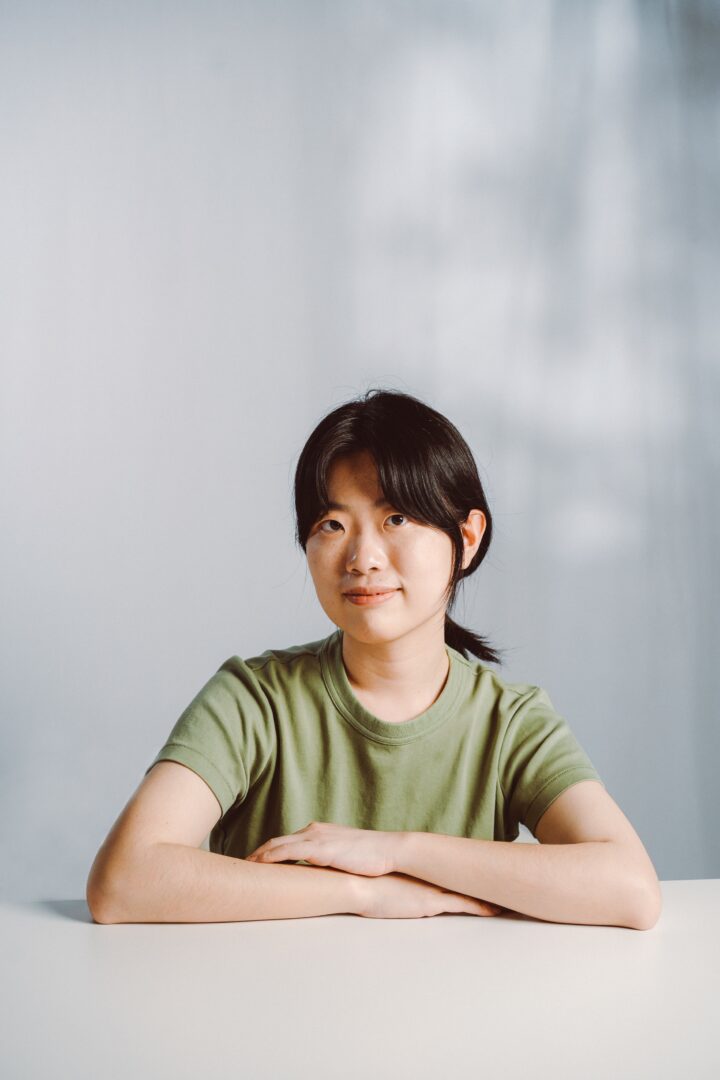Alright – so today we’ve got the honor of introducing you to Lily Ma. We think you’ll enjoy our conversation, we’ve shared it below.
Lily, so good to have you with us today. We’ve got so much planned, so let’s jump right into it. We live in such a diverse world, and in many ways the world is getting better and more understanding but it’s far from perfect. There are so many times where folks find themselves in rooms or situations where they are the only ones that look like them – that might mean being the only woman of color in the room or the only person who grew up in a certain environment etc. Can you talk to us about how you’ve managed to thrive even in situations where you were the only one in the room?
There have been many moments during my time in the U.S. when I truly felt alone. As an Asian girl studying in a completely different culture, the adjustment was hard—socially, emotionally, and academically. Just when I was starting to find my footing, the pandemic hit, and everything shut down.
In the middle of that chaos, I made a big decision: I drove 13 hours from Georgia to New York to continue taking my classes online. I knew my time in college was limited, and I didn’t want to waste it waiting for the world to restart. That choice led me to one of the most challenging and defining experiences of my student life.
In 2021, while attending SCAD remotely, I was tasked with creating a commercial video for a production class. My classmates were in Atlanta, working in pairs with access to school equipment. I was alone in New York—no partner, no gear, no local network. And it was only my first month in the city.
Instead of seeing that as a limitation, I treated it as an opportunity. I pitched myself to local businesses. I created a full director’s book, cold messaged dozens of DPs through Facebook and Instagram, and eventually built a professional crew—people who believed in my vision and joined me, even without pay. That production became my first real project in a new city to me, and it reminded me that even when you’re the only one in the room—or the only one in the city—you can still create something powerful.
Being the only one has taught me to trust myself, to move even when things aren’t certain, and to make space where none exists. It’s not easy—but it’s where I’ve found the most growth.
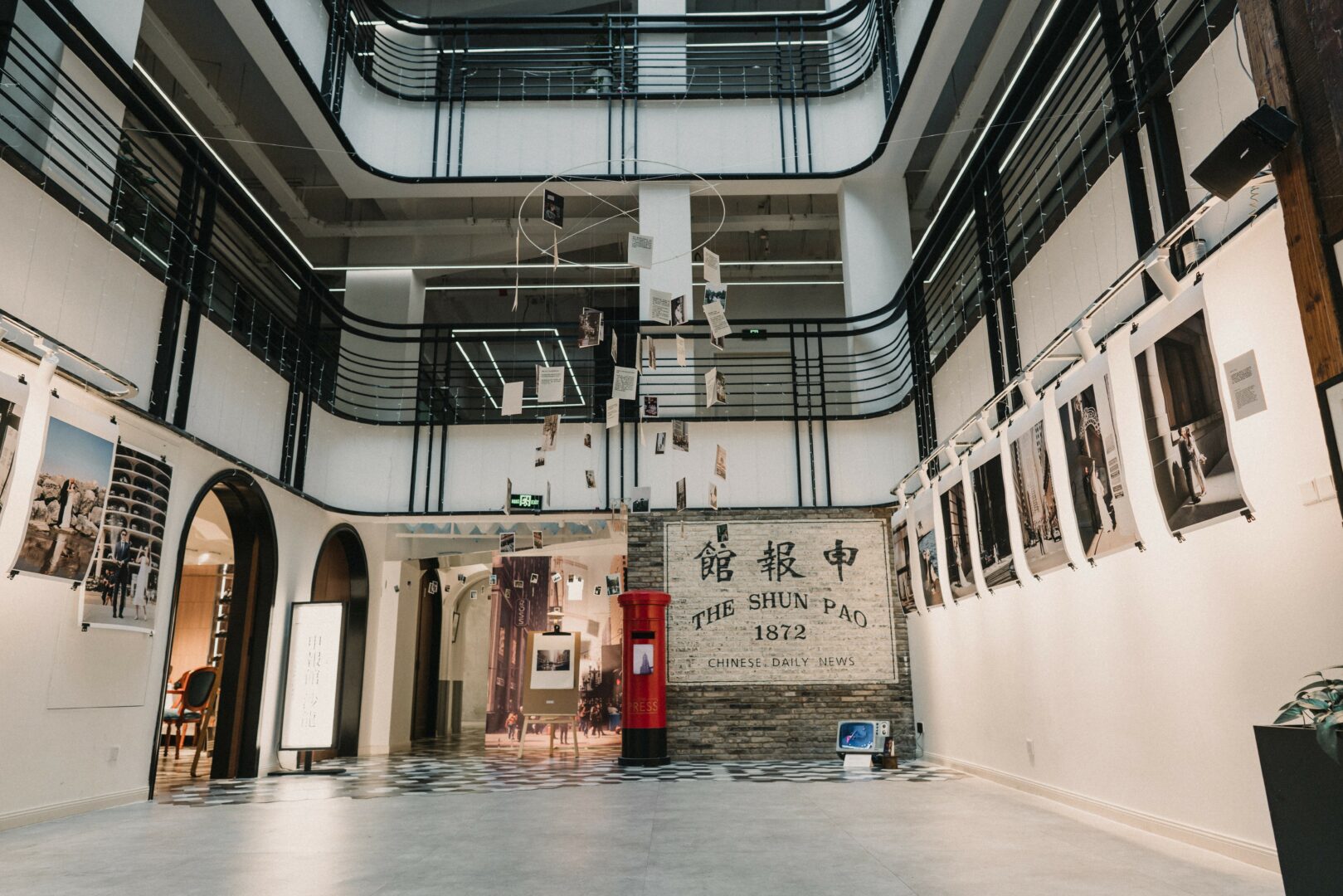
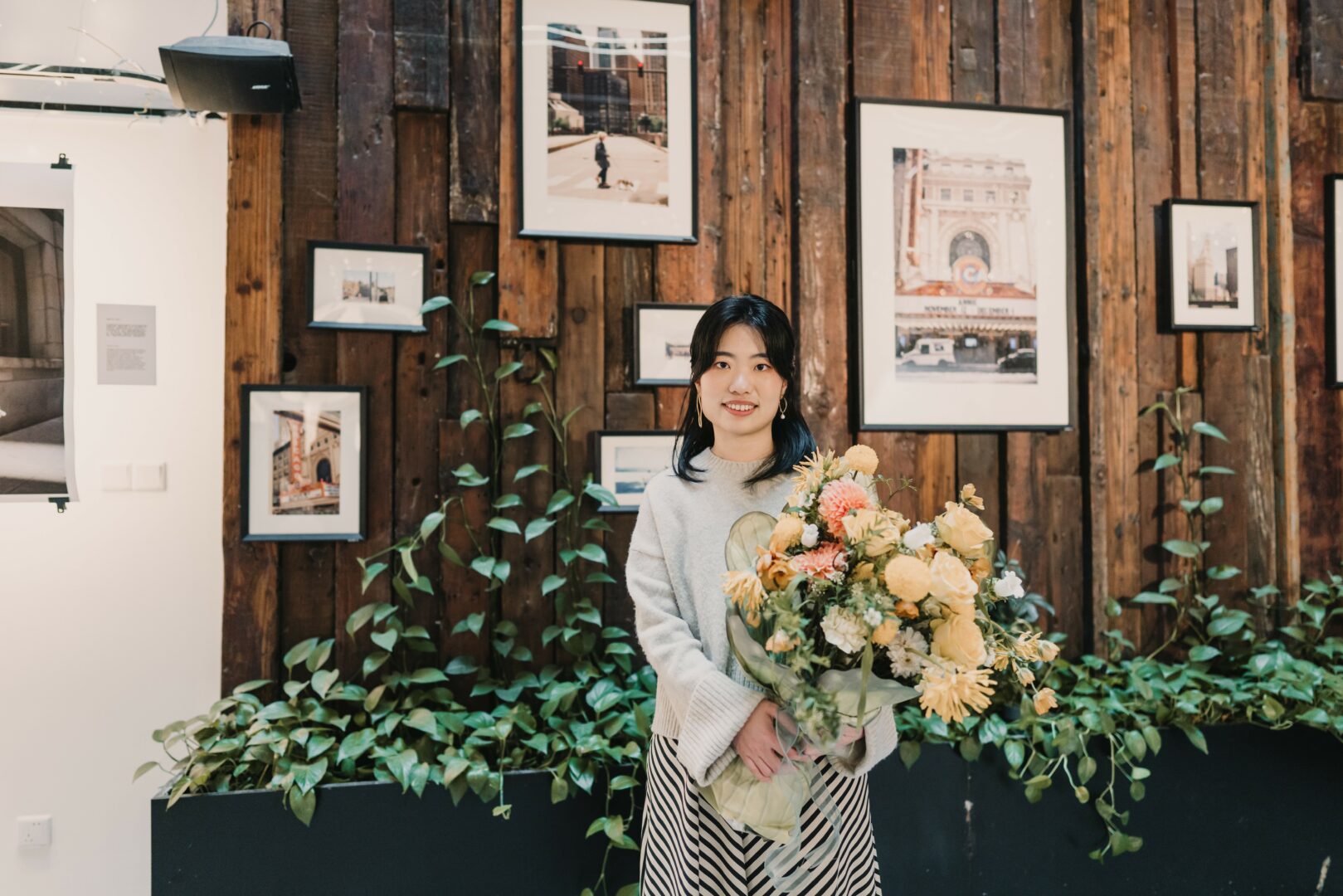
Thanks for sharing that. So, before we get any further into our conversation, can you tell our readers a bit about yourself and what you’re working on?
I’m an advertising manager and photographer with a background in film, which deeply informs my approach to visual storytelling. My work fuses cinematic composition with raw emotion, capturing not just love stories, but also powerful visual narratives for brands and businesses.
Recently, I presented my photography exhibition, The Light Whispers, in Shanghai—a poetic exploration of light, emotion, and love. Featuring tender moments of love and light, the exhibition approached light not merely as a compositional element, but as a silent narrator—conveying nuanced stories of time, intimacy, and transformation.”
This exhibition was especially meaningful because I collaborated with my best friend, Wen Shih—a talented director who curated the show. Wen and I have a long creative history, having worked on several films together back in school. One of those films, Late Call—a story about love and loss—was also featured in the exhibition, further bridging our shared language of cinema and photography.
In addition to my artistic practice, I serve as the advertising manager of a photo studio based in downtown Chicago, specializing in wedding photography and promotional video production. Drawing on my background in advertising and film, I lead with a strategic mindset—ensuring that every visual we create aligns with a broader brand narrative and emotional resonance.
Whether crafting a brand’s visual identity or capturing a couple’s milestone moment, I approach each project with the same goal: to tell stories that are both emotionally authentic and visually impactful. Through a cinematic lens and a deep understanding of audience engagement, I bridge the gap between creativity and communication—transforming visuals into experiences that connect and endure.
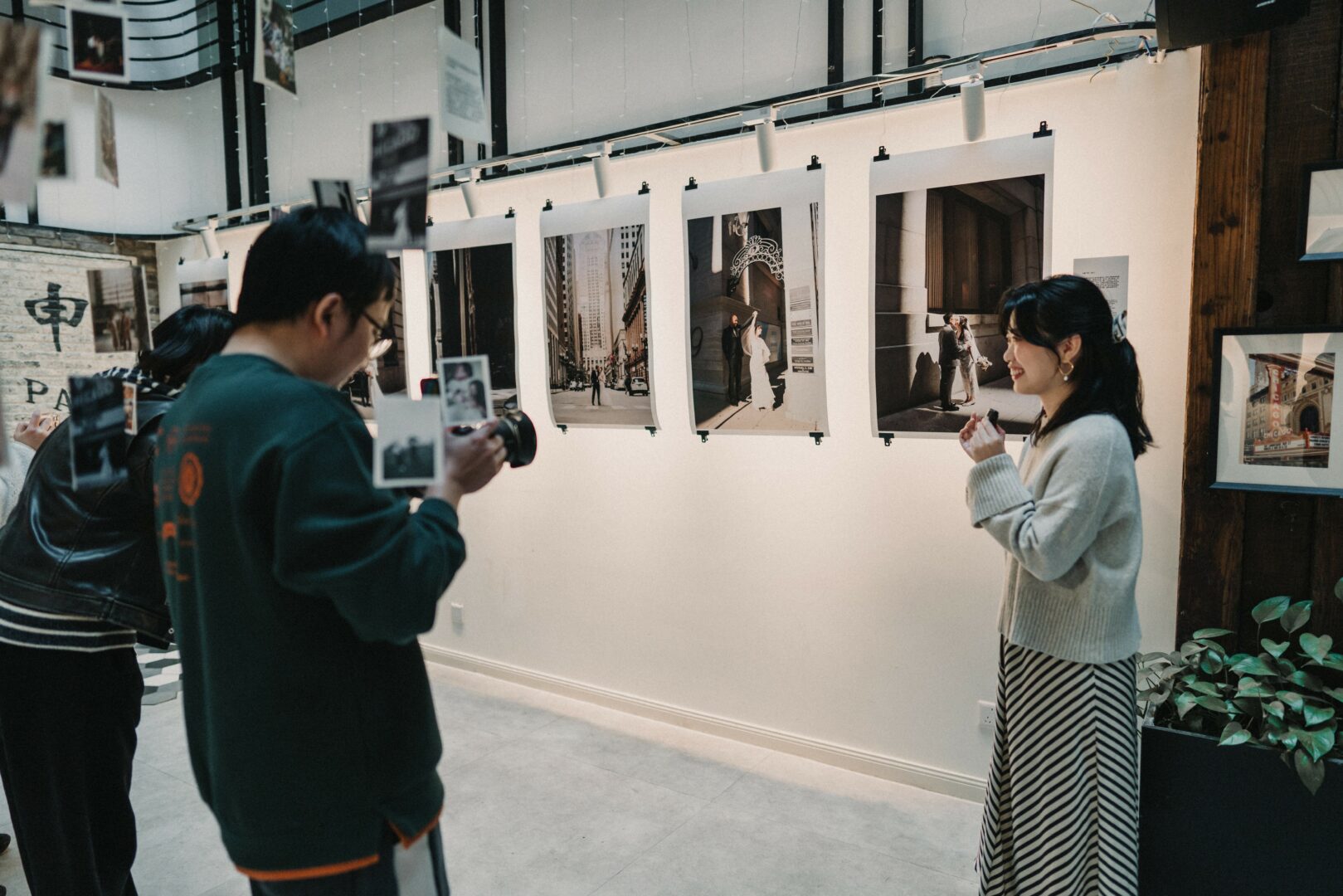

There is so much advice out there about all the different skills and qualities folks need to develop in order to succeed in today’s highly competitive environment and often it can feel overwhelming. So, if we had to break it down to just the three that matter most, which three skills or qualities would you focus on?
The three qualities that have been most impactful in my journey are: the drive to just do it, the importance of finding the right partner, and the courage to take risks.
1. Just do it.
Coming from a film and photography background, I’ve learned that ideas are only as powerful as their execution. You can have the most beautiful script, but if you don’t start shooting, it stays a dream. Especially for young graduates, there’s no need to overthink before trying something new—we have nothing to lose. Perfection is an illusion. Start now, learn along the way, and adjust as you go.
2. Finding the right partner
Just like with my photo exhibition The Light Whispers in Shanghai, timing was tight—we were preparing during the Chinese Spring Festival, when schedules and resources were limited. But I had the right partner by my side. Wen Shih, my longtime collaborator and the exhibition’s curator, helped me break down every detail of the work, from curation to storytelling. With her support, we transformed pressure into momentum. Finding someone who shares your vision, complements your strengths, and shows up in moments of intensity—that makes all the difference.
3. Have the courage to take risk
Backing to my decision to study in New York during the pandemic, I’ve always been willing to take risks when opportunity knocks. Every time, I ask myself: What’s the worst that could happen? If I can handle that, then I go for it. I embrace the challenge and figure things out along the way. What I’ve learned is that the growth, learning, and rewards often come during the process—not just at the end.
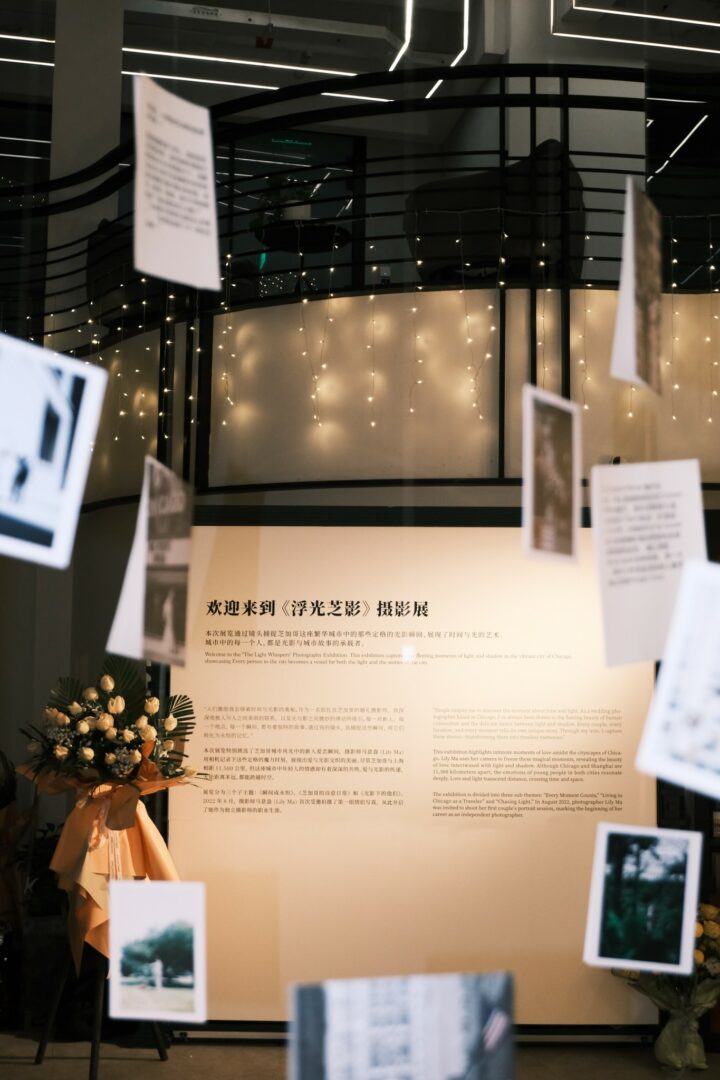
What do you do when you feel overwhelmed? Any advice or strategies?
I used to think I could handle everything on my own—until I realized I didn’t have to.
Recently, I started having weekly sessions with a therapist. It’s been one of the most grounding things I’ve done for myself. I used to think therapy was only for moments of crisis, but I’ve come to see it differently. Now, it’s a space where I can reflect, process, and just be honest with someone—without feeling like I’m burdening anyone.
Some people turn to friends or parents for support, and that’s valid. But personally, I’ve found that even small things can make my parents overly worried. I didn’t want to make them anxious over something that wasn’t a big deal. That’s why it felt healthier for me to seek professional support—someone who can listen without worry, and help me understand what I’m feeling.
And I want to share something that might resonate with other Asian girls: in our culture, going to therapy is sometimes seen as something you do only when you “have a mental health problem.” But I’ve learned that seeking help doesn’t mean something is wrong with you. It means you’re choosing to take care of yourself. And here—where mental health conversations are more open—it’s okay to speak out, even when you’re not feeling very down. In fact, that’s one of the best times to reach out.
So here’s my advice: don’t wait for everything to feel heavy before you let someone in. Support isn’t a last resort—it can be a regular part of your life, and you deserve that.
Contact Info:
- Instagram: @lilyma129
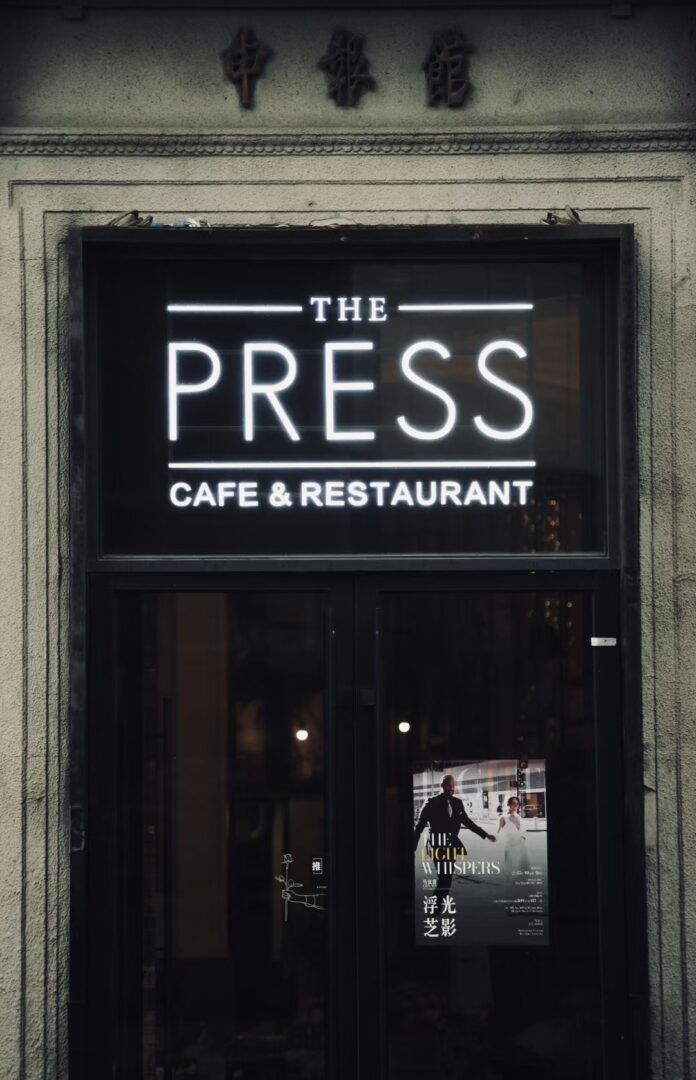
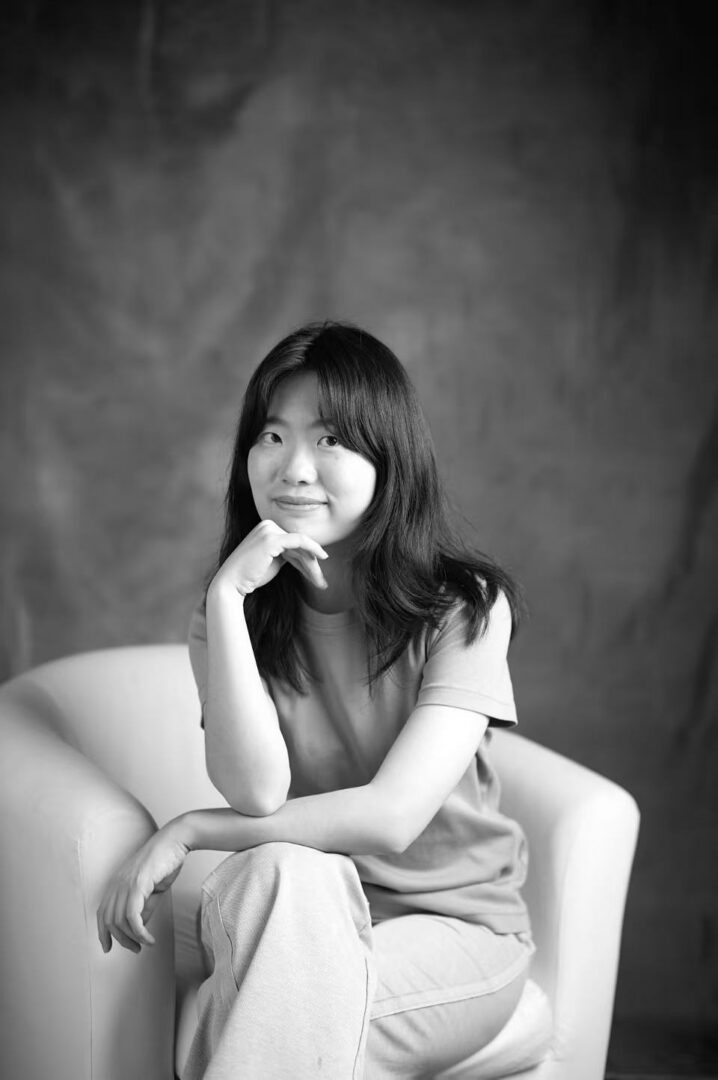
so if you or someone you know deserves recognition please let us know here.

